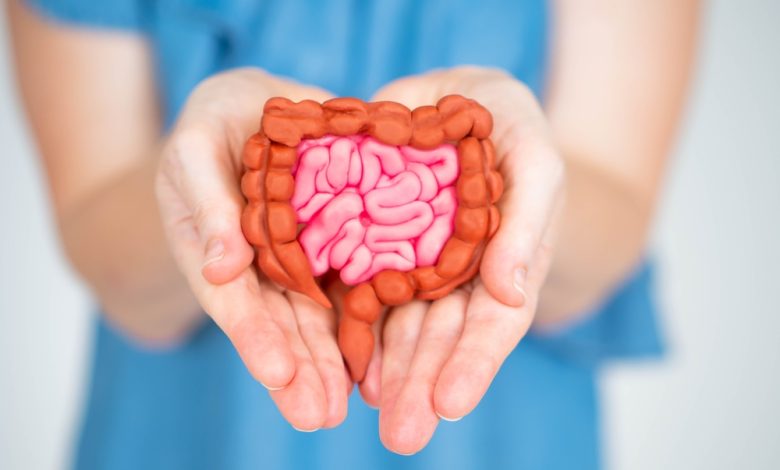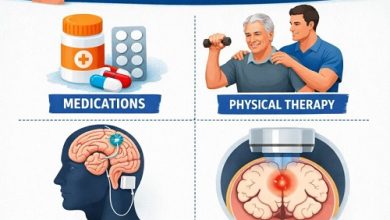Our Gut Health Could Be the Secret to Living Longer, According to New Research

The quest for a longer, healthier life has fascinated scientists, doctors, and everyday people for centuries. While genetics, environment, and lifestyle all play critical roles in longevity, recent research suggests that one of the most overlooked factors might be hiding in plain sight—inside our gut.
Your gut is home to trillions of microbes, collectively known as the gut microbiome. These tiny organisms don’t just help digest food—they influence immunity, metabolism, inflammation, and even mental health. Excitingly, mounting evidence indicates that the health and diversity of the gut microbiome could be one of the most important keys to living a longer, more vibrant life.
The latest scientific findings about gut health and longevity, explains how your microbiome influences aging, and provides practical steps you can take to nurture a gut that supports a longer lifespan.
The Gut Microbiome: Your Inner Ecosystem
The human gut microbiome is an incredibly complex community of bacteria, fungi, viruses, and other microbes living primarily in the intestines. Scientists estimate that the microbiome is made up of more than 100 trillion microbes—outnumbering human cells in the body.
What Does the Microbiome Do?
- Digestive support: Helps break down complex carbohydrates, fiber, and proteins.
- Vitamin production: Produces key vitamins like B12, K, and folate.
- Immune system regulation: Trains immune cells and helps fight harmful pathogens.
- Metabolism control: Influences fat storage, insulin sensitivity, and energy balance.
- Brain connection: Communicates with the brain via the gut-brain axis, affecting mood and cognition.
In other words, the gut microbiome isn’t just a passive passenger in our bodies—it actively shapes how we age and how long we live.
What the Latest Research Says About Gut Health and Longevity
Over the last decade, researchers have uncovered striking links between gut health and lifespan. Here are some of the most compelling findings:
1. Centenarians Have Unique Gut Microbiomes
Studies on people who live past 100 years—particularly in “Blue Zones” like Okinawa, Japan, and Sardinia, Italy—reveal that they have distinctive gut microbiomes. These individuals often have a higher diversity of beneficial bacteria, including those that produce short-chain fatty acids (SCFAs), which are compounds linked to reduced inflammation and healthier aging.
A 2021 study published in Nature found that centenarians had higher levels of Akkermansia and Bifidobacterium, both associated with metabolic health and resilience against infections.
2. Gut Diversity Predicts Healthy Aging
Research shows that greater microbial diversity in the gut is strongly correlated with better overall health in older adults. Low diversity, on the other hand, is associated with frailty, chronic disease, and shorter lifespan.
A landmark 2019 study in Nature Medicine analyzed gut microbiomes of over 9,000 people and found that individuals with more diverse microbiomes tended to live longer and age with fewer health issues.
3. Gut Health Influences Inflammation and Disease
Chronic inflammation—sometimes called “inflammaging”—is one of the leading contributors to aging and age-related diseases like heart disease, Alzheimer’s, and diabetes. Beneficial gut bacteria produce SCFAs such as butyrate, which reduce systemic inflammation and strengthen the intestinal lining.
When the gut becomes imbalanced (a state called dysbiosis), harmful bacteria can trigger inflammation, weaken immunity, and accelerate aging.
4. The Gut-Brain Axis and Cognitive Longevity
Emerging studies also suggest a strong link between gut microbes and cognitive decline. A healthy microbiome produces neurotransmitters like serotonin and GABA, which regulate mood and protect against stress. Some studies show that certain probiotic strains can improve memory and reduce risk of neurodegenerative diseases, supporting the idea that gut health may be critical for cognitive longevity.
How Gut Health Affects the Aging Process
Now that we know the microbiome plays a role in longevity, let’s break down exactly how it influences aging.
1. Inflammation Control
Healthy microbes regulate immune responses and reduce chronic inflammation, which is a major driver of aging.
2. Nutrient Absorption
The gut microbiome helps extract and synthesize essential nutrients that support energy, immunity, and tissue repair—key for longevity.
3. Metabolic Regulation
Gut bacteria influence weight, insulin resistance, and fat storage. A balanced microbiome helps prevent metabolic diseases like type 2 diabetes.
4. DNA Protection
Some beneficial bacteria produce antioxidants that protect cells and DNA from damage, slowing the biological aging process.
5. Brain Health
Through the gut-brain axis, microbes regulate mood, memory, and cognition, helping preserve mental sharpness into old age.
Practical Ways to Improve Gut Health for Longevity
The good news is that while genetics do play a role in your microbiome, lifestyle and diet are far more influential. Here are evidence-backed strategies you can use to cultivate a gut microbiome that supports longer life.
1. Eat More Fiber-Rich Foods
Fiber is the single most important nutrient for gut health because it feeds beneficial bacteria. Aim for 25–35 grams of fiber daily from foods such as:
- Whole grains (oats, quinoa, brown rice)
- Legumes (beans, lentils, chickpeas)
- Fruits (apples, bananas, berries)
- Vegetables (broccoli, carrots, leafy greens)
- Nuts and seeds
2. Include Fermented Foods
Fermented foods introduce probiotics (live beneficial bacteria) into your gut. Examples include:
- Yogurt (with live cultures)
- Kefir
- Sauerkraut
- Kimchi
- Miso
- Tempeh
3. Eat Prebiotics
Prebiotics are fibers that specifically nourish good bacteria. Top sources include garlic, onions, leeks, asparagus, and bananas.
4. Limit Processed and Sugary Foods
Refined sugar and processed foods promote the growth of harmful bacteria. A diet high in processed foods is consistently linked to dysbiosis and inflammation.
5. Stay Active
Regular exercise increases gut microbial diversity and promotes SCFA production. Even 30 minutes of moderate activity daily can make a difference.
6. Manage Stress
Stress negatively alters the microbiome. Practices like meditation, yoga, deep breathing, and spending time in nature can protect gut health.
7. Get Enough Sleep
Sleep disruption changes the composition of gut microbes. Aim for 7–9 hours of quality sleep per night.
8. Be Cautious with Antibiotics
While sometimes necessary, antibiotics wipe out beneficial microbes along with harmful ones. Use only when prescribed and support recovery with probiotics afterward.
9. Consider Probiotic and Postbiotic Supplements
Supplements containing strains like Lactobacillus and Bifidobacterium may improve gut health. Emerging research also highlights postbiotics—compounds produced by bacteria—that offer anti-inflammatory benefits.
The Role of Personalized Nutrition
Not everyone’s microbiome is the same. Two people can eat identical diets yet have very different gut responses. This is where personalized nutrition comes in.
New technologies allow researchers to analyze your microbiome and create tailored dietary plans to improve balance and diversity. While still an emerging field, microbiome testing could soon become a powerful tool in personalized longevity strategies.
Future of Gut-Health and Longevity Research
Scientists are only beginning to scratch the surface of how gut health impacts lifespan. Promising areas of research include:
- Fecal microbiota transplantation (FMT): Early studies show that transferring gut bacteria from young mice to older mice extends lifespan. Human trials are underway.
- Designer probiotics: Engineered bacteria that can produce specific longevity-enhancing compounds.
- Postbiotics and metabolites: Harnessing bacterial byproducts like SCFAs and polyamines to slow aging.
- Microbiome as a biomarker: Using gut composition to predict disease risk and lifespan.
The future may see treatments where “gut rejuvenation” becomes a standard approach to extending healthspan.
Potential Risks and Misconceptions
While gut health is incredibly important, it’s not a magic bullet. Here are some caveats:
- No single food or supplement guarantees longevity. Gut health is influenced by overall lifestyle, including sleep, exercise, and stress.
- Overuse of probiotics can backfire. Not all probiotic strains are beneficial for everyone; some can cause bloating or discomfort.
- Genetics still matter. While the microbiome is powerful, your genetic blueprint still plays a role in longevity.
- Balance is key. Too much focus on “killing bad bacteria” can disrupt gut ecology. The goal is balance, not sterilization.
Conclusion
The science is clear: your gut health may very well be one of the most important determinants of how long—and how well—you live. By nurturing a diverse, balanced microbiome, you can reduce inflammation, protect your brain, prevent chronic disease, and potentially add years to your life.
The secret to longevity isn’t found in a single pill or superfood but in cultivating a lifestyle that supports your inner ecosystem. Eat fiber-rich foods, enjoy fermented dishes, exercise regularly, manage stress, and sleep deeply—your gut will thank you.
As research advances, we may soon see revolutionary therapies that harness the microbiome to extend human lifespan. But until then, the best strategy is simple: feed your gut well, and it just might reward you with more years of vitality.




